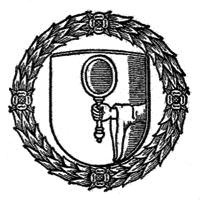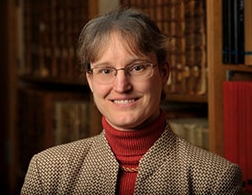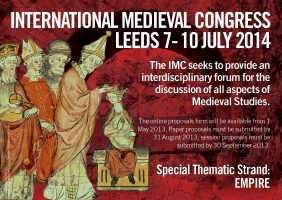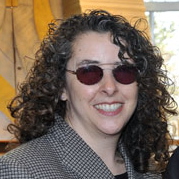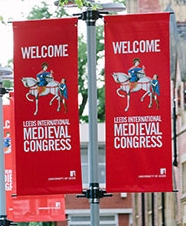The University of North Carolina at Chapel Hill is pleased to post this professional position.
The minimum salary for librarian positions in the University Library is $45,000. Salary is commensurate with qualifications and experience.
POSITION: Assistant Curator of Rare Books (At Will Appointment)
AVAILABLE: September 1, 2014
The University of North Carolina seeks an energetic and collegial individual with a strong academic background to further the curatorial work of the Rare Book Collection (RBC) (http://www.lib.unc.edu/rbc/) at the Louis Round Wilson Special Collections Library (http://www.lib.unc.edu/wilson/). Reporting to and working closely with the Curator of Rare Books, the Assistant Curator will contribute to maintaining a vibrant profile for the Rare Book Collection.
The Assistant Curator will participate in collection development, including the review of auction and dealer catalogs, sales offers, and potential gifts, as well as donor stewardship. The individual in this position will also work on programming and outreach initiatives, exhibitions, and publications, and manage social media and digitization projects. The Assistant Curator is expected to be active in scholarly and library professional organizations. The Assistant Curator may supervise students and will participate in reader services at the Rare Book Collection/North Carolina Collection Reading Room, with a regular weekly desk shift and occasional weekend desk service.
The Rare Book Collection has significant national and international literary and historical holdings, ranging from clay tablets, medieval manuscripts, and early printed books to recent fine printing. Collection strengths include English and Irish literature, incunabula and sixteenth-century printing, history of the book, French history and literature, the New World cronistas, Maya studies, Spanish, Portuguese, and Catalan drama, World War I and II graphic materials, and American popular culture.
In addition to the Rare Book Collection, the Louis Round Wilson Special Collections Library includes the North Carolina Collection, the Southern Folklife Collection, the Southern Historical Collection, and University Archives and Records Management Services.
QUALIFICATIONS
Required: ALA-accredited master’s degree in library or information science and/or an advanced degree in a humanities discipline supported by the holdings of the Rare Book Collection. Knowledge of descriptive bibliography and direct work experience with rare books for at least one year. Excellent oral and written communication skills. Proven attention to detail. Ability to work with a broad spectrum of individuals. Reading knowledge of Latin or at least one of the following modern European languages: French, German, or Spanish. Ability to understand bibliographic information in French, German, and Spanish. Active participation in appropriate professional organizations.
Preferred: Formal coursework in rare books. Additional foreign languages. Knowledge of the antiquarian book trade. Experience in planning and managing exhibitions, lectures, and other public programs. Advanced degree in a humanities discipline. Editorial and publishing experience and experience developing digital products that promote or facilitate the use of rare books and manuscripts and special collections.
The University and The Libraries
The University of North Carolina at Chapel Hill is the country’s oldest state university. UNC Chapel Hill has an enrollment of approximately 29,000 students, employs more than 3,500 members of the faculty, and offers 69 doctoral degrees as well as professional degrees in dentistry, medicine, pharmacy and law. The UNC Health Sciences Library is a recognized leader within the Association of Academic Health Science Libraries. University Library collections include over 6.5 million volumes. The Library is a member of the Association of Research Libraries and the Center for Research Libraries. Together with the libraries at Duke University, North Carolina Central University, and North Carolina State University, the members of the Triangle Research Libraries Network (TRLN) provide services and collections to their students, faculty, and staff in support of the education, research, and service missions of the universities.
The University Library invests proudly in its employees, strives to create a diverse environment of respect and collaboration, and encourages vision and innovation.
The Region
The Triangle region is one of the most desirable places to live and work in North America and offers its residents a wide array of recreational, cultural, and intellectual activities. The mountains or the seashore are less than half day’s drive from Chapel Hill.
The University of North Carolina is an equal opportunity employer and is strongly committed to the diversity of our faculty and staff.
Salary and Benefits
This is an At Will Appointment, contingent upon the availability of funding. Salary is commensurate with qualifications and experience. Standard state benefits of annual leave, sick leave, and State or optional retirement plan.
Deadline for Application
Review of applications will begin on July 21, 2014. Applications will be accepted until the position is filled, but preference will be given to applications received by the begin review date.
To Apply
Please visit http://unc.peopleadmin.com/postings/45698 and complete the online application. Please include a letter of application, a resume and the name, mailing address, email address, and telephone number of three professional references, one of whom must be a current supervisor. Additionally, please indicate in your cover letter where you first learned of this position.

